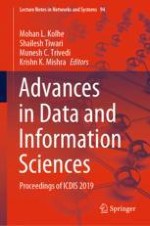2020 | OriginalPaper | Chapter
Standard Library Tool Set for Rough Set Theory on FPGA
Authors : Vanita Agarwal, Rajendrakumar A. Patil
Published in: Advances in Data and Information Sciences
Publisher: Springer Singapore
Activate our intelligent search to find suitable subject content or patents.
Select sections of text to find matching patents with Artificial Intelligence. powered by
Select sections of text to find additional relevant content using AI-assisted search. powered by
